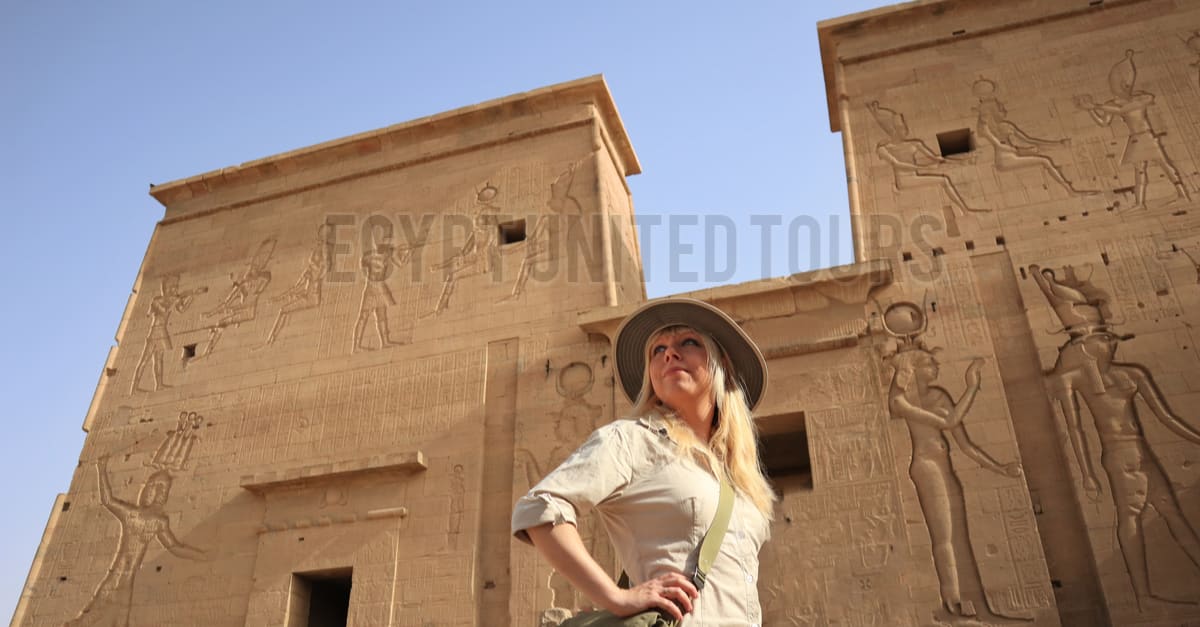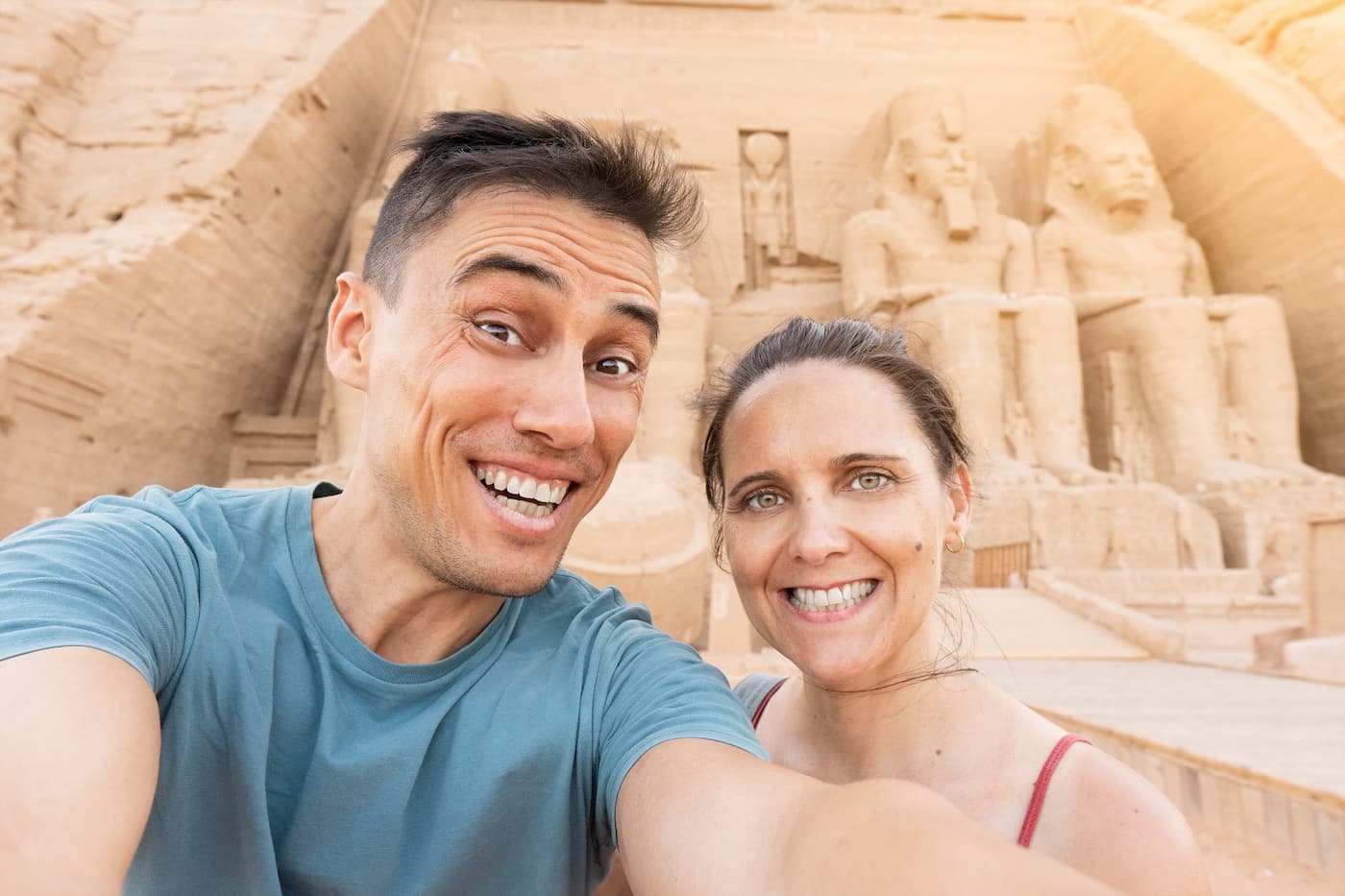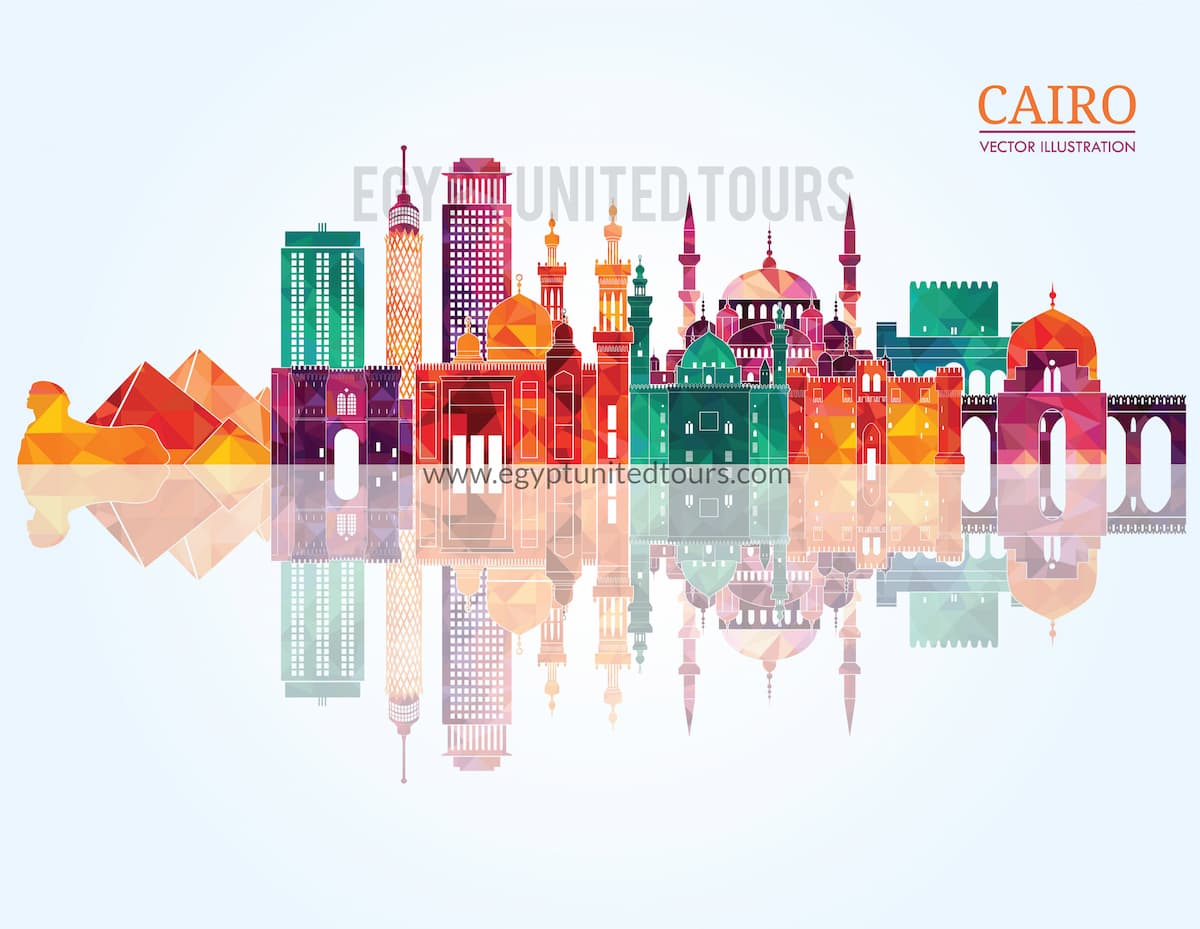The Eternal Journey: Understanding Ancient Egyptian Afterlife Beliefs
The ancient Egyptian afterlife was the very focal point of Egyptian religious and cultural proceedings. Central to their beliefs were the ancient Egyptian afterlife beliefs, which held that death was not considered an event but rather a transgression into the new realm. Egyptians considered the soul to keep living in the afterlife as long as it passed the various trials and judgments. This thought affected the daily social and funeral activities of the Egyptians. The very epitome of immortality ran through Egyptian existence, where the afterlife was just a continuation of living here on Earth.
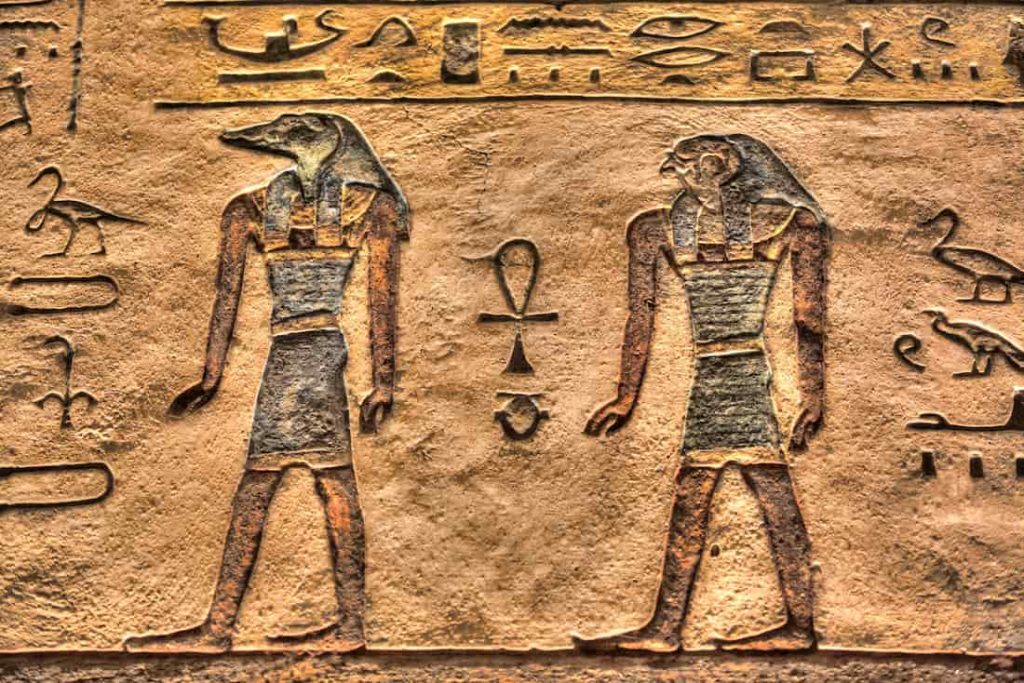
Ancient Egyptian Afterlife Beliefs
The Egyptian Book of the Dead greatly aided the deceased in their journey through the Netherworld and adequately before judgment. This guide would contain prayers, spells, and rituals for the safe transit into the afterlife. The understanding of the Ancient Egyptian afterlife concept sheds some light on one of the world’s oldest civilizations and greatest influences. Consider the views of the afterlife by the Egyptians, their journey across it, and the occasion for judgment.
Why Was the Afterlife So Important in Ancient Egypt?
In Ancient Egyptian beliefs, the afterlife was a lighter culture in the belief system. In Ancient Egyptianism, they considered the afterlife to be a continuation of life instead of the final resting place. The afterlife was the most important destination, and carrying out an upright life meant that the soul would be granted entrance there. They said mortal deeds performed on earth affected what happened to a person after death. This belief formed the basis of their morality, in which Ma’at (balance and truth) was the chief focus toward settling down peacefully after death.
Death was considered a transformation rather than an ending, with Egyptians preparing themselves for this stage throughout their lives. Throughout their existence, they followed the rituals and the ethical constitution of Ma’at, which shielded their souls in the afterlife. In preparation for death, they buried, mummified, and gave offerings to the tomb. They believed that the gods would have a great part to play in leading the soul through the realm of death. Hence, they considered the afterlife equally important for the soul and for those concerning the community and the nation.
How Did Egyptians View the Afterlife?
The Egyptians treated the afterlife as a continuation of life, albeit idealised and more tranquil. Death would not have been considered as an end but as a stage in that realm where the soul would continue its journey. They believed that souls, upon having received positive judgment, would live forever in a paradise where they would enjoy all sorts of pleasures similar to those enjoyed on earth. Such a vision represented their interpretation of immortality and the emphasis put on preparation for the afterlife.
Spirits or souls were thought of by the Egyptians to have several components, such as Ka, or the vital principle, and Ba, or the personality. These parts of the soul continued living after death. With avenues filled with hazards from gods and trials awaited in the Duat, the Egyptian underworld, the soul had to make its way through it. One’s decisions, in accordance with Ma’at (truth, justice, and order), applied to whether the soul could find entrance into the Field of Reeds, a kind of paradise.
This view of the afterlife by Egyptians was not simply some spiritual concept; rather, it was a set of guidelines for living. Egyptians believed that the soul would remain bound to its body unless it received proper care, rituals, and offerings from family members and priests
The Egyptian Book of the Dead: A Guide to the Afterlife
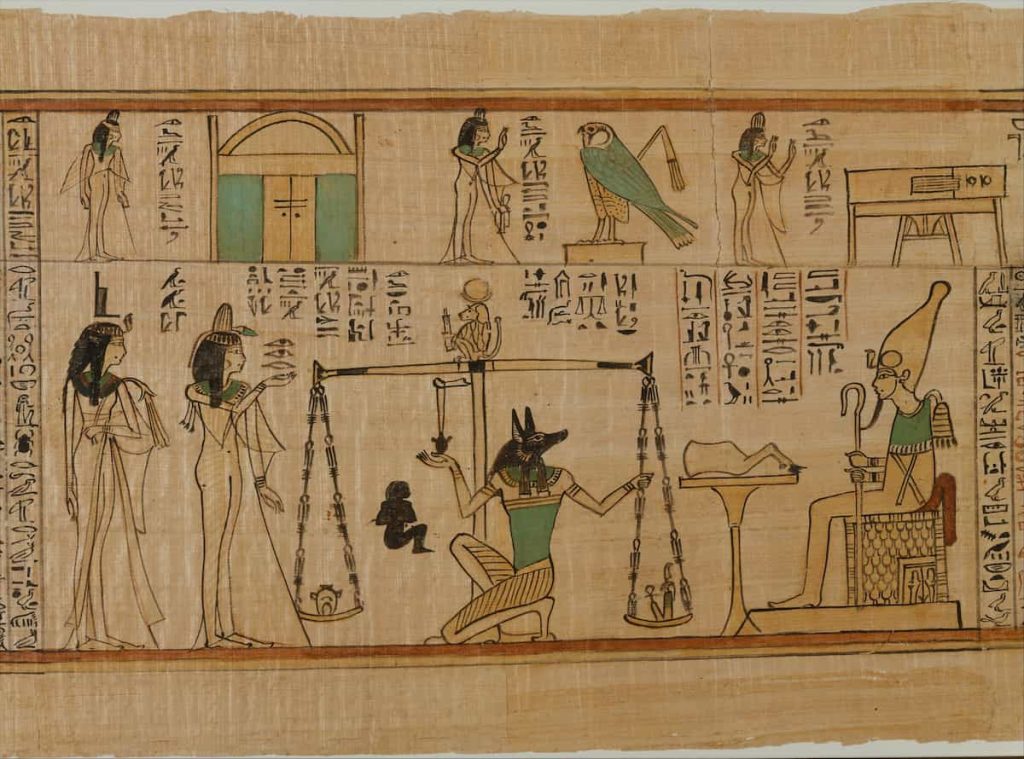
The Egyptian Book of the Dead
The Book of the Dead was an extremely important passageway for the dying into the afterlife, so much so that spells, prayers, and rituals contained within would ostensibly guide a soul through the harrowing journey in the Duat, or Egyptian underworld. The book was compiled especially for the person, with spells targeted toward his/her occupation in life and the destination in the afterlife; it is believed that the book would aid the soul with protection and knowledge for the forthcoming trials.
An important part of the Book of the Dead was this emphasis on judgment. The dead stood before Osiris, the god of the dead, who weighed their heart against the feather of Ma’at to see whether they had led a righteous life. If found righteous, they were granted entrance into the Field of Reeds, which was a paradise. If deemed wicked, they faced annihilation.
The best-known quotes of the Egyptian Book of the Dead describe the soul’s journey and the gods with whom it made contact. The spells were also to help the deceased avoid Apep, the serpent god, and other dangers. The Egyptian Book of the Dead formed a necessary ingredient within the funerary rituals and was operative to ensure spiritual and physical protection for a safe passage.
The Egyptian Afterlife Journey: Step by Step
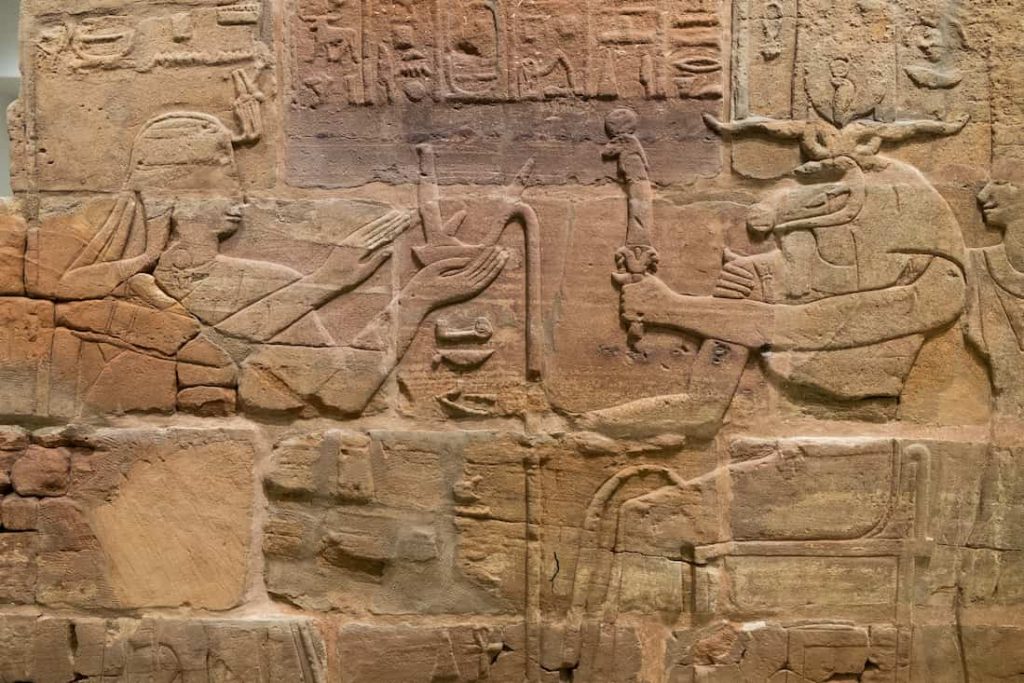
Sandstone wall of King Aspelta offering Ma’at (Truth) to ram-headed god Amun-Re, accompanied by Anukis, Temple T at Kawa
This was the step-by-step process in the Egyptian afterlife journey. The ill-constructed process had to pass through several stations on its way. The soul entered into the Duat at death, a world full of hazards and obstacles. The soul first encountered the Opening of the Mouth ritual, which allowed the deceased to speak, breathe, and eat in the afterlife. The ritual proceeded to allow the soul to begin its journey and to talk to the gods.
Beyond that, the soul had to face a string of gates and trials in the Duat, guarded on either side by gods and various spirits that could either aid or obstruct progress. The deceased would encounter tests designed to determine whether their actions during life had been in alignment with Ma’at (truth and order). Along this arduous path, the soul strived toward the ultimate goal, its final judgment.
The Weighing of the Heart was indeed the moment of truth for judgment. The deceased was weighed against the feather of Ma’at, the symbol of truth, to see if he had truly lived a righteous life. If the soul passed, it would be allowed into the Field of Reeds or paradise, where it could spend eternity in bliss.
The Judgment of the Soul: The Weighing of the Heart
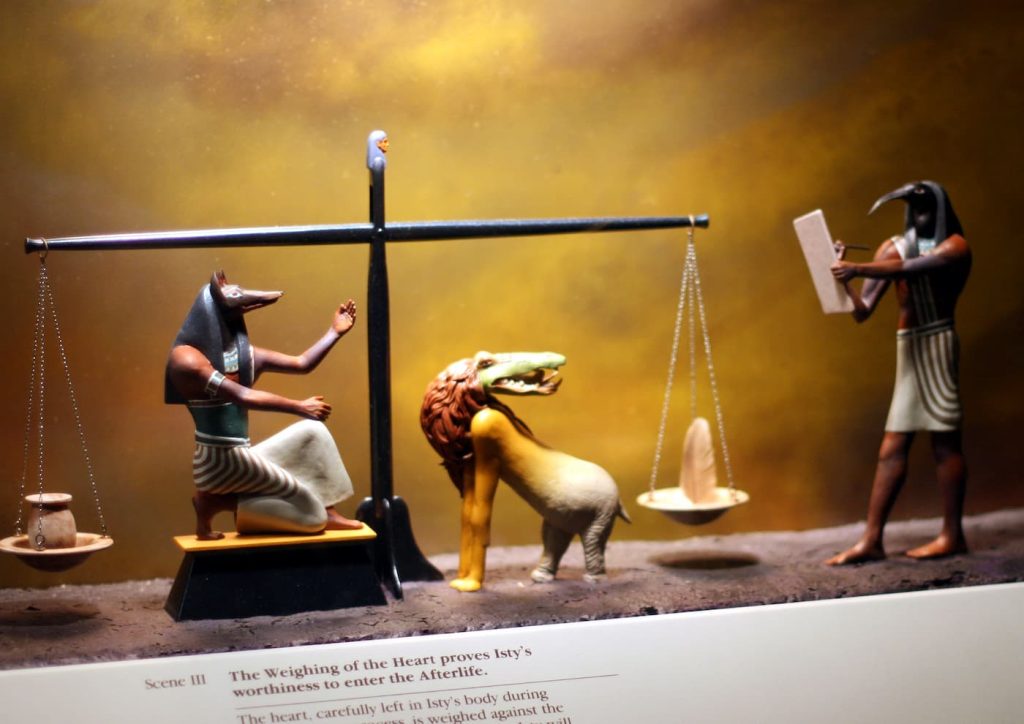
The Weighing of the Heart
This weighing of the heart was the most important part of the afterlife judgment. The basic belief was that the heart of the deceased was weighed on a scale against the feather of Ma’at-that represented truth, order, and justice. This judgment was before Osiris, the afterlife deity, who presided over it.
If the heart was lighter than the feather, the deceased was recognized as a righteous soul who had lived according to Ma’at. The soul is thus transferred to the Field of Reeds, an eternal paradise where one has an idyllic existence forever. However, if the heart turns out to be heavier than the feather, the indication is of sin and immoral corruption. Here, the soul is devoured by Ammit, a demoness with the body of a lion, head of a crocodile, and hindquarters of a hippopotamus. Hence, this would bring a cessation to the existence of the soul.
The Weighting of the Heart ceremony presented the final challenge to the soul in determining its chance of everlasting existence in peace or in eternal destruction.
According to Ancient Egyptian Afterlife Beliefs , Which Best Describes the Afterlife?
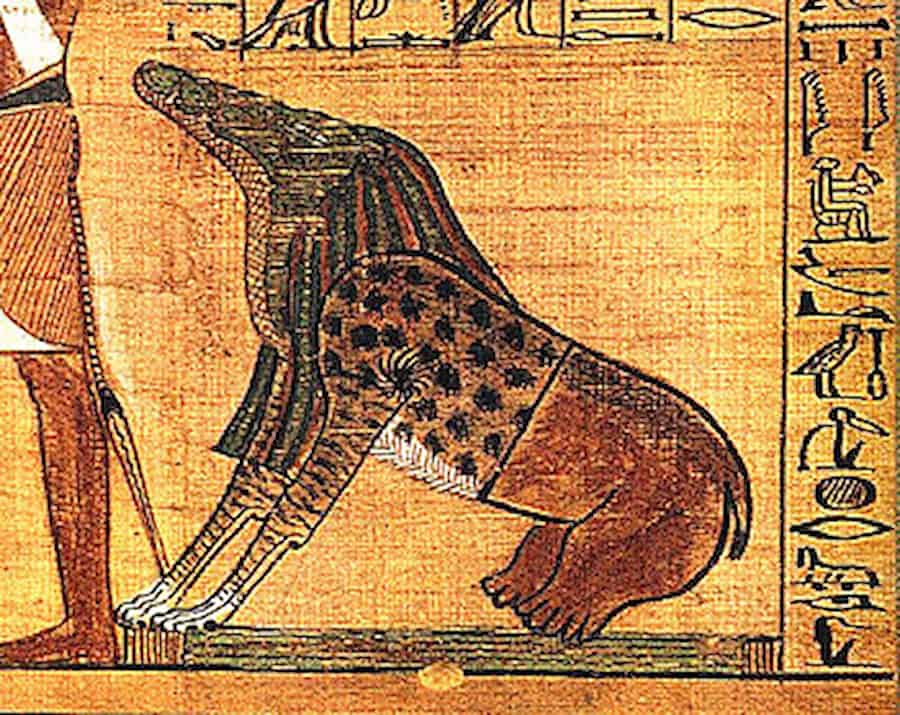
Ammit
In ancient Egyptian thought, death was considered a transition to the afterlife, with the actual life continuing in a more idealized and perfected form. If the person was found worthy by the gods, they were allowed into the Field of Reeds, an earthly paradise. The deceased would enjoy eternal peace, happiness, and prosperity in this place, much like they did on earth. The Field of Reeds is a name for the ultimate prize after living a worthy life.
The afterlife was not so friendly for those found unworthy of everlasting life. The soul would be annihilated, mostly at the hands of Ammit, a fearsome demoness. Being eaten by Ammit meant death to the soul, for it was no longer to live in any form. The afterlife was ultimately viewed as a continuation of life, where one could live in peace forever, provided one had lived virtuously.
The Egyptians had a belief that, after the last judgment was passed, the soul reunited with its Ka and Ba (two aspects of a soul). The reunification of these two ensured that the soul was able to continue in the other world. The afterlife was ultimately viewed as a continuation of life, where one could live in peace forever, provided one had lived virtuously.
The Role of Gods in the Afterlife
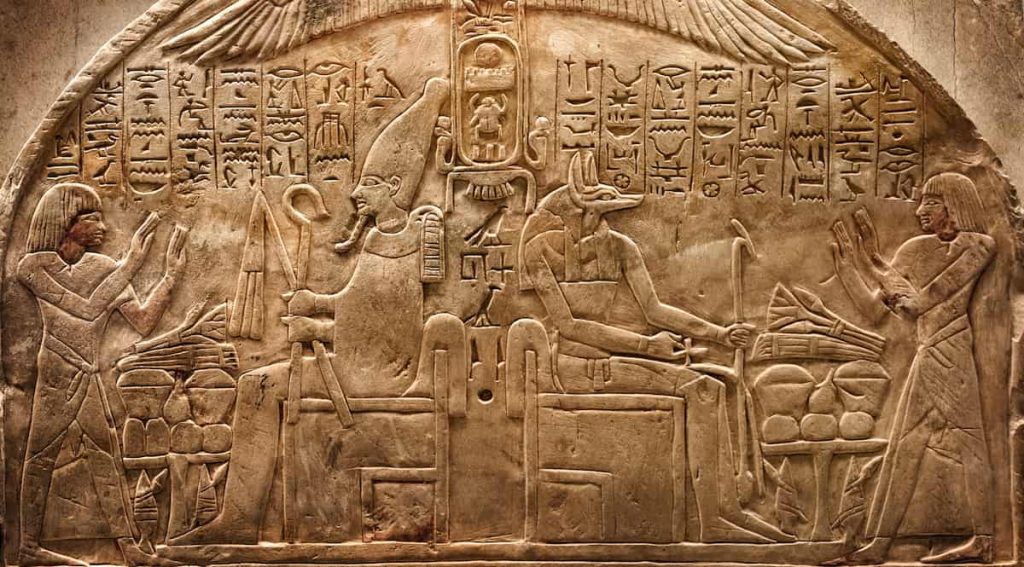
Ancient Egyptian deities Osiris and Anubis
In Ancient Egypt, the gods served as guides and protectors of the soul in its journey through the afterlife. The chief among these gods was Osiris-the god of the dead. He was lord over the kingdom of the dead and dealt with the judging of the dead. He was sometimes seen as a king mummified, the embodiment of death, resurrection, and eternal life.
It was practically essential to count Anubis amongst the other key gods. Indeed, he had the roles of being the god of embalming and funerary rites. He oversaw embalming and made sure that the body of the soul had not been tampered with. His role was hence extremely crucial in preparing the soul for its passage through the Duat (underworld).
Thoth is known as the god of wisdom and writing, and he had an important function in documenting the outcomes of the judgment. He was the scribe for the Weighing of the Heart. Horus was the god of protection; likewise, he might have made sure that the soul passed safely and that the spirit of the deceased reached the afterlife unmolested.
All these gods and many others were active in ensuring the soul reached the Field of Reeds or went to judgment. They ensured a little guidance and protection in the afterlife.
Funerary Practices and Offerings for Ancient Egyptian Afterlife Beliefs
According to Ancient Egyptian funerary practices, there had to be an unimpeded transition into the afterlife. Ancient Egyptians felt the need for spiritual and material assistance for the deceased soul to cross the duat and enter the Field of Reeds. Mummification was the most important funerary ritual. The body was preserved for the Ka and Ba of the soul, the two aspects of the soul that needed a physical form in the afterlife.
One thing that gives us a clear illustration of all the preparations done for the soul of the deceased is the edifice erected for the dead as their eternal dwelling. People stored the tomb full of offerings consisting of food, drink, and valuables that would sustain the soul in its journey. Included in the offerings were sometimes possessions that the individual had used or enjoyed during their life: clothes, jewellery, food, etc.
Whatever food and drink may have been offered physically, the Egyptians also placed texts from The Egyptian Book of the Dead into the tombs with them to help the deceased through their trial in the world below in the presence of gods and demons, and the process is called Weighing of the Heart. These rites helped assure that even if the soul made it through the rites unwatched, the priests guaranteed its care and protection into its new birth.
Legacy of Ancient Egyptian Afterlife Beliefs
The procession of Ancient Egyptian funerary rituals and afterlife ideas significantly affected contemporary culture and religion. The Egyptians’ concern for life after death prompted the invention of one of the most highly developed burial civilizations and afterlife theories ever. These belief systems informed and inspired religious practices in later cultures, while their funerary practices provided a blueprint for other ancient peoples.
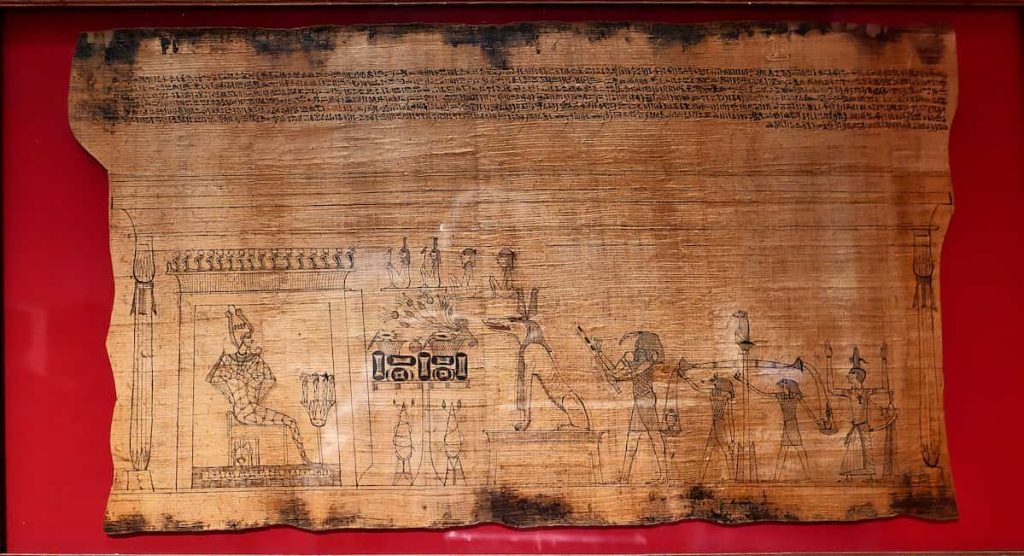
The Book of the Dead
The Book of the Dead has left much of its imprint on religious philosophy. Concepts common in modern religions, such as judgment after death and everlasting souls, are reflections of Ancient Egyptian philosophy. Enthusiasts and scholars alike keep trying to learn about the Egyptian afterlife to glean information about the spiritual occupation of one of the ancient civilizations.
These great monuments and tombs, including the pyramids, are representative symbols of the highly cultivated spiritual and architectural cultures of Egypt. In popular culture, the preoccupation with the afterlife has also remained a frequent theme in literature, films, and the arts. This rendering of death as an eternal life in transition by the Egyptians is really what has forever made their heritage an indelible and influential feature in human history.
Conclusion
An afterlife fantasy in Ancient Egypt was a comprehensive and deeply entrenched set of beliefs that were ingrained into everyday life and Egyptian culture. The Egyptians considered death just a change, not the end of existence, with the afterlife seen as earthly life transported to a higher existence. Judgment by Osiris, Weighing of the Heart, and passage through the Duat would constitute the soul’s journey.
The Egyptian Book of the Dead served as a precious source of information for the departing souls to make it safely across the afterlife. These belief systems would deeply influence the course of spiritual thought, casting their shadow into the concept of death prevailing to the present day. By studying the Ancient Egyptian concepts of the afterlife, we pick up useful perspectives into one of the most lovely and enduring civilizations of all time.


